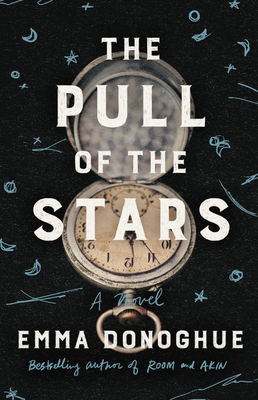What do you think?
Rate this book


295 pages, Hardcover
First published July 21, 2020
Here we are in the golden age of medicine— making such great strides against rabies, typhoid fever, diphtheria— and a common or garden influenza is beating us hollow.
I found myself wondering who'd put us all in the hands of these old men in the first place.
The Written Review
Just released my Worst 2020 Books Video - now that you know this one made the list, click the link to find the rest!
Nurse Julia works tirelessly in the maternity ward as the plague and the war ravages through Ireland.
 by this author. The book is historically accurate and interesting it was way too medically detailed for me. The story takes place over 3 days and most of the drama is played out in a maternity Ward in the hospital.
by this author. The book is historically accurate and interesting it was way too medically detailed for me. The story takes place over 3 days and most of the drama is played out in a maternity Ward in the hospital. Vita gloriosa vita. Life glorious life.
October 31, 1918. Dublin, Ireland - A war - A pandemic - A hospital maternity/fever ward - A skilled midwife/nurse Julia Power - An able bodied helper/runner Bridie Sweeney - And Dr. Kathleen Lynn, rebel doctor and 'real life' character.
The story takes place in three very long exhausting days for a nurse, her helper and a doctor on the run. And everyone is overworked including an annoying singing orderly...that you may just come to like, dangerously inept doctors and "old crow" Sister Luke, that you probably won't.
And whew! If you don't know anything about the technical aspects of childbirth, while fighting contagious flu symptoms, you certainly will after reading THE PULL OF THE STARS. You will also come to know the reason for the unseemly scary chapter titles....RED - BROWN - BLUE - BLACK.
For me, a slowly paced start of medical procedures and graphic births changed into enlightenment, an intense fight for life, a surprising relationship and a fast-moving shocker of a conclusion.
So......"How do we get back to normal after a pandemic?"......I hope we find out....sooner than later.
ARC provided by Little Brown & Company via NetGalley in exchange for review.